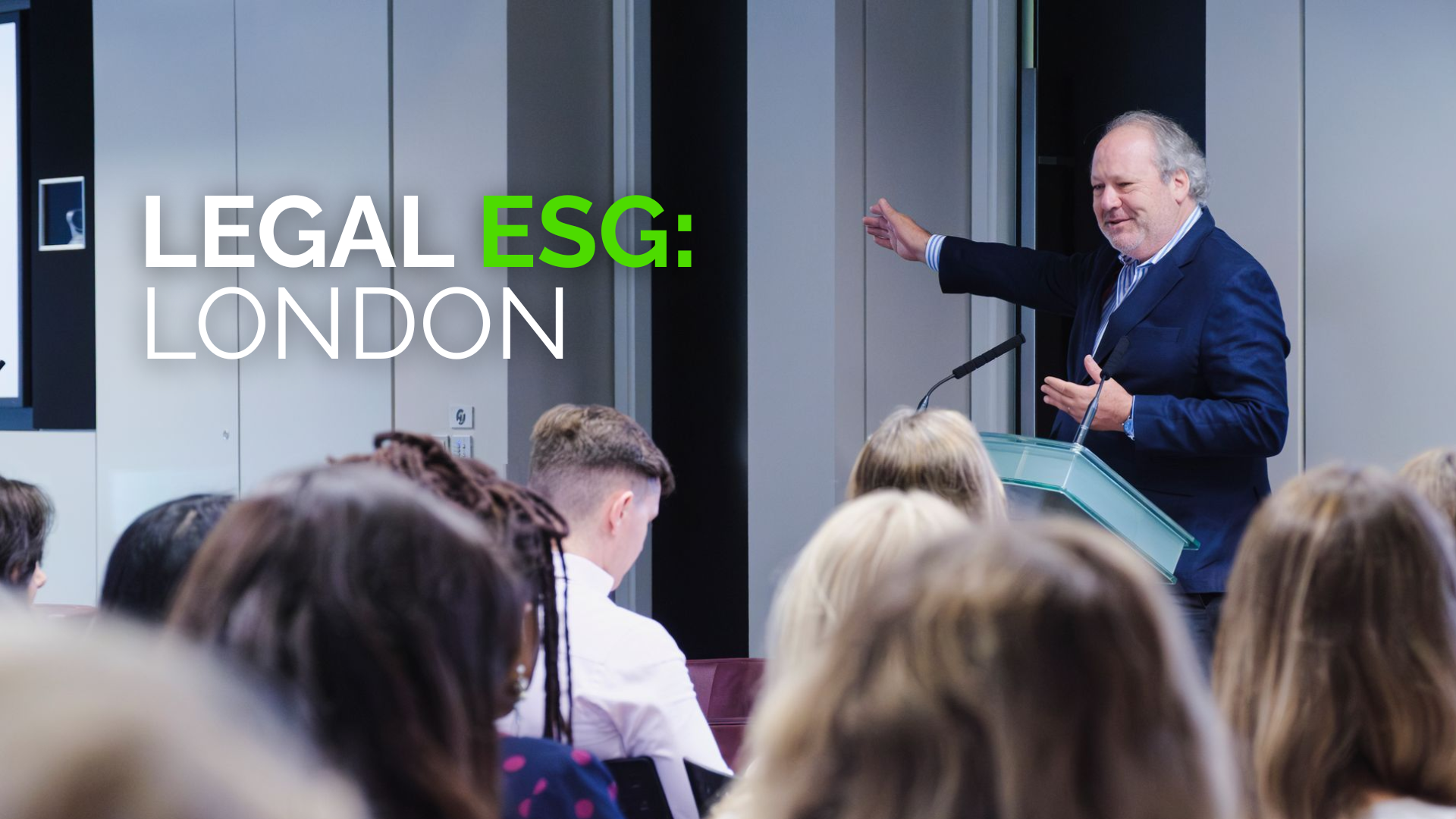ESG Work Takes Off at Big Law Firms, as Clients Navigate Disclosure Requirements
ESG "has been driven into the mainstream both by the regulatory and government side, but also the pandemic accelerated interest in this,” Stacy Louizos, co-lead of Blank Rome’s ESG team, said.
The first quarter of 2021 has inundated full-service law firms with demand from corporate clients for legal counsel on how to navigate the uncertain disclosure process and reputational management of their business’ environmental, social and governance (ESG) activity.
ESG practitioners at Blank Rome, Ballard Spahr and Armstrong Teasdale say the influx of ESG-related matters has been driven by the Biden administration’s stated efforts to broaden the disclosure requirements for companies.
ESG practice groups are proliferating broadly across the industry—Gibson, Dunn & Crutcher announced a new ESG group in March, for example, and Seyfarth Shaw formed an ESG group in February. Last month, Morgan, Lewis & Bockius bolstered its own ESG group by bringing on four lawyers from Patterson Belknap Webb & Tyler, who represent philanthropic and not-for-profit organizations and the for-profit organizations that work with them.
“ESG is starting to be considered part of a risk management program, that you need to consider these factors and how they impact your business,” said Stacy Louizos, co-lead of Blank Rome’s more than 25-lawyer ESG team and co-chair of the firm’s investment management group.
Armstrong Teasdale partner John Sten, who co-leads the firm’s securities regulation and litigation practice area, said disclosing activity related to the “S” and “G” in “ESG” isn’t as standardized as the “E” part, which has long held carbon-emitting companies accountable for their climate-related impact.
Under the Biden administration, Sten, a former member of the Securities and Exchange Commission’s enforcement division before moving to Armstrong Teasdale, said he anticipates “an abundance” of new guidance, regulation and enforcement around how companies should incorporate ESG in their public disclosure statements. By contrast, the Trump administration’s comparatively lax approach to regulation and enforcement made for an uncertain culture of how businesses would be held accountable, he said.
“At this stage, it’s really about advising clients about what ESG disclosures really mean, developing best practices for implementing it, and at the same time understanding that we’re going to communicate with regulators at times who are going to want to make sure they’re walking the walk,” he said. “That last part hasn’t landed yet, but you know it’s coming.”
Sten said Armstrong Teasdale is in the process of organizing an ESG group as part of an outgrowth of the firm’s own values of diversity, inclusion and sustainability.
Industry leaders say the change in administration isn’t the only thing driving client demand for ESG legal counsel; investors in all industries seek broader transparency from the companies they invest in on their impact on the environment, their equitable use of human capital and diversity in governance. In his annual letter to CEOs, BlackRock CEO Larry Fink told companies and BlackRock clients in January they should disclose business plans that will reduce carbon emissions to zero by 2050.
“If you’re an oil company, a lot of [ESG] is going to be at the forefront,” said Kahlil Williams, a litigation associate at Ballard Spahr who co-leads the firm’s recently launched ESG group. “Increasingly, people are saying it doesn’t matter if you’re a bank or whatever you do, you should be doing your part.”
At Ballard Spahr, firm leaders have organized a more than 50-attorney working group, led by practitioners spearheading each of the three components of ESG: partner April Hamlin, a corporate and securities law practitioner, leads the governance side of the group; Williams, who leads the group’s ”S” component related to diversity and pay equity; and of counsel Lorene Boudreau, assisting clients in environmental litigation.
“We are charged with understanding what’s happening in the ESG space,” Williams said. “It’s a lot of issue-spotting and it’s a lot of making sure everyone is on the same page in a space that’s growing rapidly.”
For many clients, Williams said, the lack of a standardized protocol for disclosure is a source of frustration for companies concerned about opening themselves up to liability and reputational cost. He said much of the activity around ESG disclosures arises from tensions between shareholder proposals for disclosure and a company’s leadership, and much of his work revolves around counseling clients on ensuring consistency between the business’ stated corporate values and their actual operations.
Williams said companies are beginning to be subject to litigation if their stated values of diversity included in their proxy materials don’t manifest in the company’s actual practices.
In response to a demand from shareholders, SEC Acting Director of the Division of Corporation Finance John Coates said in a March 11 public statement that the commission’s policy on ESG disclosures will need to “be both adaptive and innovative.”
“We can and should continue to adapt existing rules and standards to the realities of climate risk, for example, and the fact that investors increasingly are asking for ESG information to help them make informed investment and voting decisions,” Coates said. “We will also need to be open to and supportive of innovation—in both institutions and policies on the content, format and process for developing ESG disclosures.”
Team leaders at Blank Rome said the firm’s ESG team launched in early 2020 with five or six members, before the COVID-19 pandemic derailed efforts—attention turned toward advising clients on navigating the pandemic’s uncertain economic landscape. But the protests surrounding racial injustice that followed the death of George Floyd and others by police have kept shareholder activism alive. And environmental health continues to get attention.
ESG “has been driven into the mainstream both by the regulatory and government side, but also the pandemic accelerated interest in this,” Louizos said. “You need a multidisciplinary approach because it’s hitting in different ways in terms of the company, depending on where they are in the supply chain and what kind of work they do.”
Yelena Barychev, who co-leads Blank Rome’s ESG team with Louizos, said the group has recruited attorneys from securities and corporate law, investment management, labor and employment, and energy and environmental industry groups. Team leaders said the firm’s midmarket clients with sustainable lending funds or SPACs with ESG-driven strategies are retaining them for best practices advisory work.
“We’ve got people joining every day because it’s hitting so many areas of business that we’re finding there’s various areas of impact,” Louizos said.
INSIGHTS:










